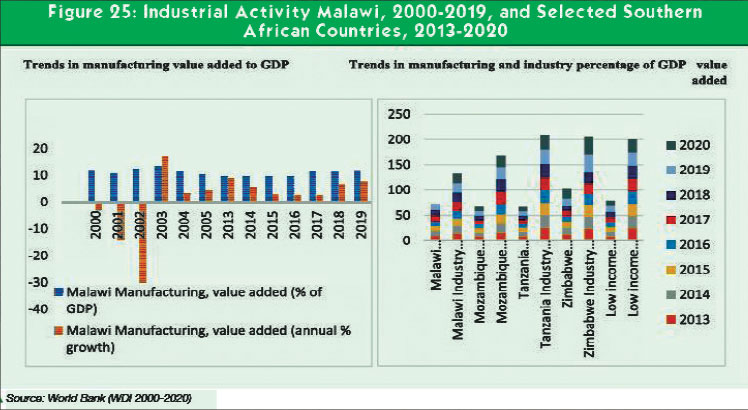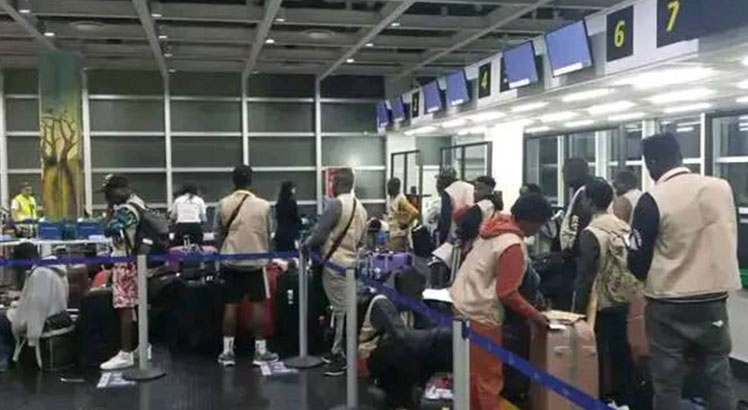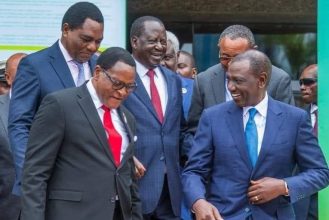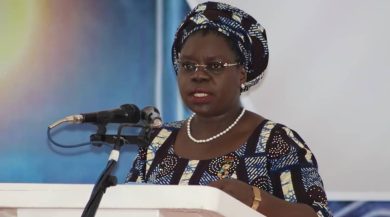AfDB cautions on industrialisation
The African Development Bank (AfDB) says the prevailing business environment in the country is not conducive for the overall development of the sector, observing that government incentives tend to favour foreign investors.
In its country diagnostic note published recently, the bank observed the local private sector plays aminute role with limited involvement in the country’s industrial sector while the domestic market is small and fails to attract investor interest, unless there are demonstrable export opportunities.
Reads the note in part: “The legaland regulatory frameworks for the promotion of public-private partnerships are inadequate.Government needs to improve the business environment by focusing on issues of licensing and business legislation, contracts, certification, etc.
“There is also aneed to promote structured markets for manufactured products.”
Industry (including construction) in Malawi is significantly lagging behind the other countries in the region at an average of 16.45 percent of gross domestic product (GDP) between 2013-2020, compared to 20.8 percent and 25 percent of GDP in Mozambique and low-income countries, respectively, according to published World Bank data.

At the same time, the National Statistics Office (NSO) data shows that growth in products such as food beverages and tobacco products decreased from 12.26 percent in the 1970s to 5.38 percent by 1989 before dwindling as low as -9.10 percent during 1994 to 2000.
For goods produced locally for the domestic market, growth declined from9.42 percent to -4.51 percent between 1994 and 2000 in what is regarded as a period of de-industrialisation.
Industrialisation is a central part of the government’s inclusive economic transformation agenda, with manufacturing, due to its potential forward and backward linkages with other sectors such as agriculture and mining, beingkey to growth.
Malawi has for the past 10 years to 2022 failed to improve on industrialisation due to gaps that hinder private sector development such as poor infrastructure and lack of connectivity to markets.
Out of 52 countries in Africa, Malawi anchors the bottom 10 countries and is on position 43 down from 36 in 2010, according to Africa Industrialisation Index.
Earlier, Malawi Confederation of Chambers of Commerce and Industry president Lekani Katandula said Malawi needs to have a clear path with regards to what would boost industrial production, further calling for liberalisation so that players can get the full export value of their earnings.
“We need to look at whether when people industrialise and export, they can get all their export proceeds at market driven exchange rates or rates based by the regulator that may not represent what is on the market,” he said.
To foster industrialisation, the government is undertaking reforms, including expanding energy generation, implementation of special economic zones, and strengthening investmentto catalyse growth in institutions with development financing arrangements.
Government through the Ministry of Trade is also implementing the Buy Malawi Strategy aimed at promoting locally produced goods and services.
The MW2063 First 10-Year Implementation Plan shows that industrialisation has stagnated mainly because of high production costs due to inefficiencies in energy and transport as well as poor standards leading to non-competitive products on international markets.





